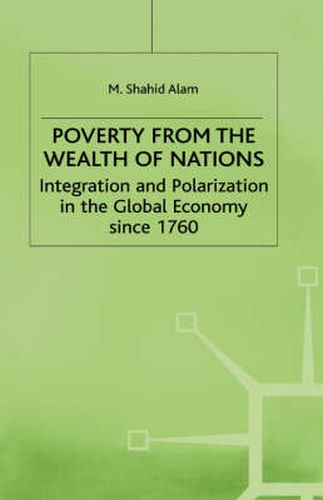Readings Newsletter
Become a Readings Member to make your shopping experience even easier.
Sign in or sign up for free!
You’re not far away from qualifying for FREE standard shipping within Australia
You’ve qualified for FREE standard shipping within Australia
The cart is loading…






This title is printed to order. This book may have been self-published. If so, we cannot guarantee the quality of the content. In the main most books will have gone through the editing process however some may not. We therefore suggest that you be aware of this before ordering this book. If in doubt check either the author or publisher’s details as we are unable to accept any returns unless they are faulty. Please contact us if you have any questions.
In Poverty from the Wealth of Nations , the author presents an analysis of the evolution of global disparities that goes beyond the earlier neo-Marxist critiques of global capitalism. He moves beyond their narrative by inserting two additional asymmetries into the global economy - those created by ‘unequal races’ and unequal states. The author analyzes not only the power of markets, but the powers that shaped these markets. More importantly, he marshals cross-country evidence to show that loss of sovereignty retarded industrialization, human capital formation and economic growth.
$9.00 standard shipping within Australia
FREE standard shipping within Australia for orders over $100.00
Express & International shipping calculated at checkout
This title is printed to order. This book may have been self-published. If so, we cannot guarantee the quality of the content. In the main most books will have gone through the editing process however some may not. We therefore suggest that you be aware of this before ordering this book. If in doubt check either the author or publisher’s details as we are unable to accept any returns unless they are faulty. Please contact us if you have any questions.
In Poverty from the Wealth of Nations , the author presents an analysis of the evolution of global disparities that goes beyond the earlier neo-Marxist critiques of global capitalism. He moves beyond their narrative by inserting two additional asymmetries into the global economy - those created by ‘unequal races’ and unequal states. The author analyzes not only the power of markets, but the powers that shaped these markets. More importantly, he marshals cross-country evidence to show that loss of sovereignty retarded industrialization, human capital formation and economic growth.